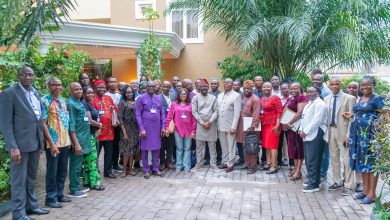APC Criticises Makinde Over N63.5bn Government House Renovation Plan
Oyo APC slams Makinde’s N63.5bn Government House renovation as reckless and poorly timed.
Party says funds should go to urgent needs like health, education, and public infrastructure.
The Oyo State chapter of the All Progressives Congress (APC) has strongly criticized Governor Seyi Makinde’s plan to spend N63.5 billion on renovating the Government House, calling it a waste of public money and not necessary.

This reaction came in a statement issued by the party’s Publicity Secretary, Wasiu Olawale Sadare, who urged the governor to reconsider the decision. The APC expressed concern that such a huge sum is being allocated to a project it considers unnecessary, especially given the current economic challenges faced by the state.
Governor Makinde recently revealed his intention to embark on a full-scale renovation of the Agodi Government House, estimating the cost at N63.5 billion. The opposition party, however, sees this move as extravagant, pointing out that the building was already renovated in 2017 under the administration of the late Governor Abiola Ajimobi.
According to the APC, the current condition of the structure does not warrant such a massive expenditure. They argued that the funds could be better used to address more pressing needs in health, education, and infrastructure across the state.
Sadare noted that the governor’s latest move is consistent with what the party described as a pattern of reckless spending. He recalled how, in 2019, the state government allegedly paid over N2,000 per unit to produce exercise books for public school pupils, a decision that also raised eyebrows at the time.
He added that Makinde’s remarks to lawmakers at the State House of Assembly on Thursday did little to convince critics, describing the speech as an attempt to justify what the party sees as a case of financial mismanagement and abuse of office.
The APC concluded by urging the governor to prioritize the welfare of the people and reconsider projects that do not reflect the state’s most urgent needs.



